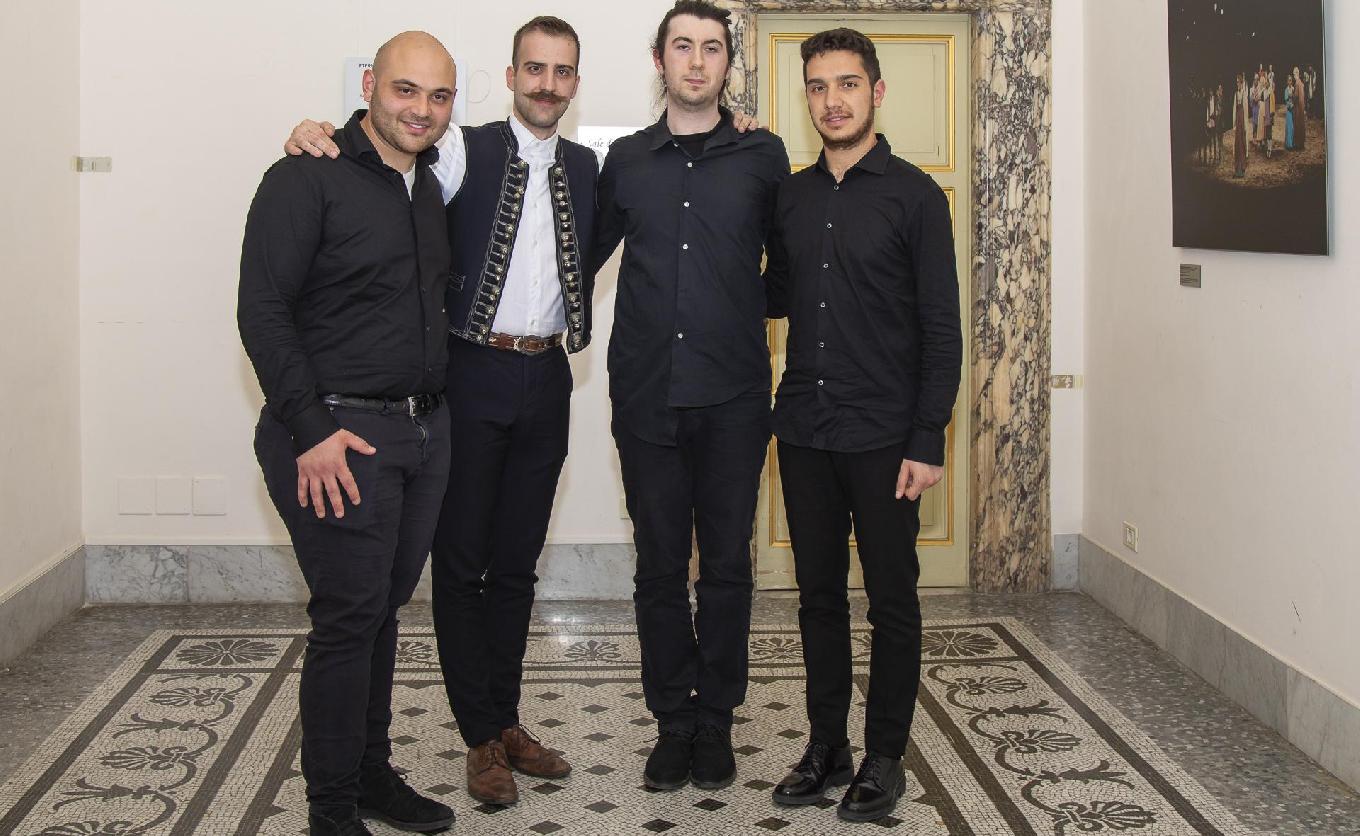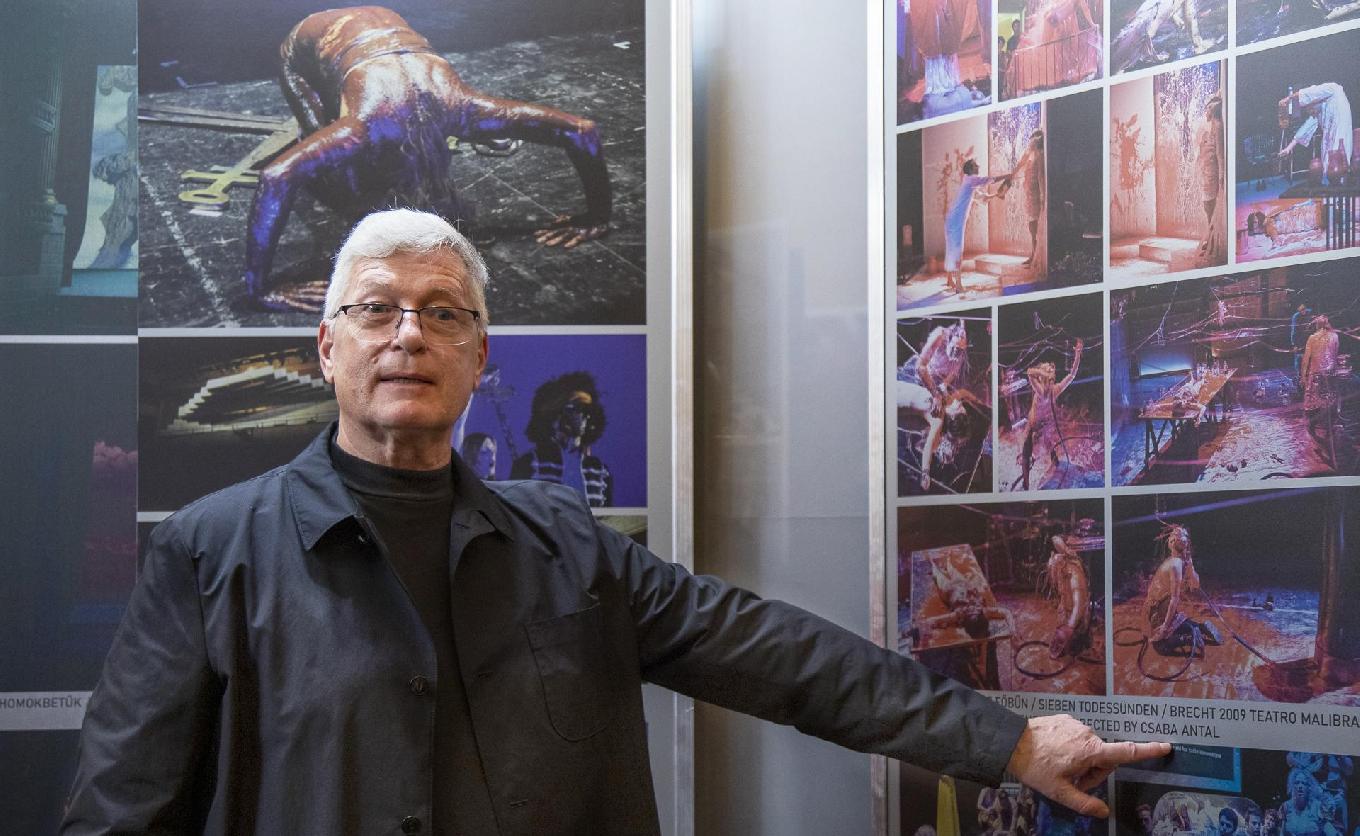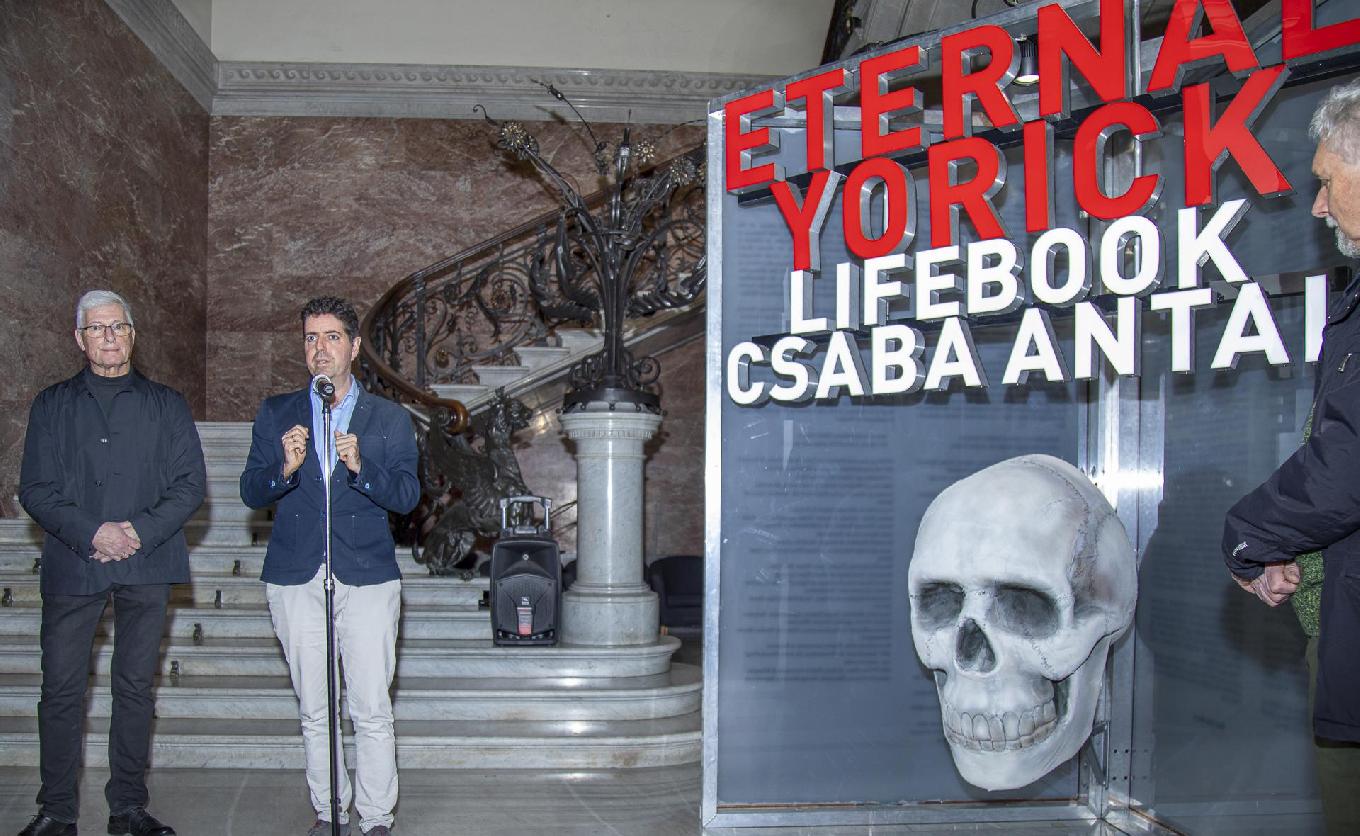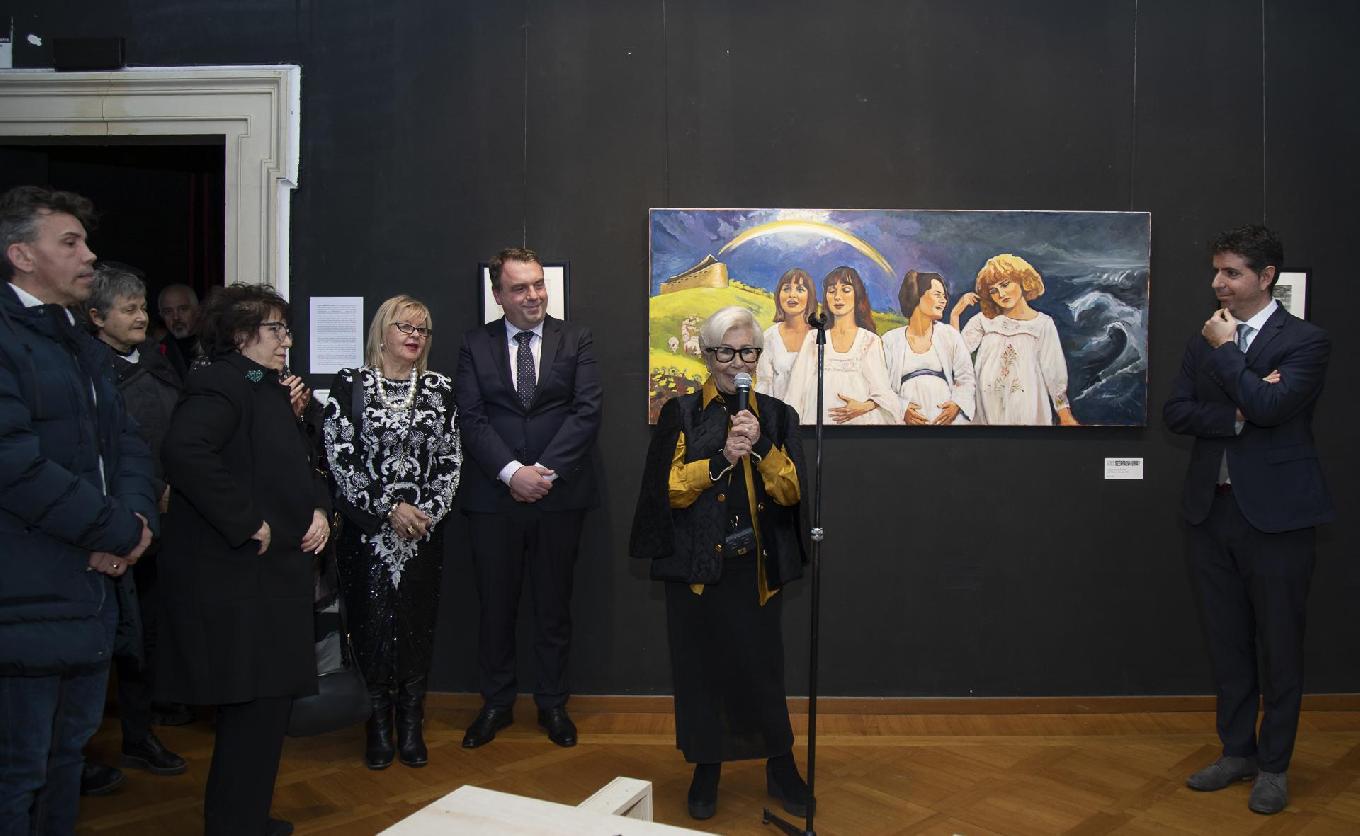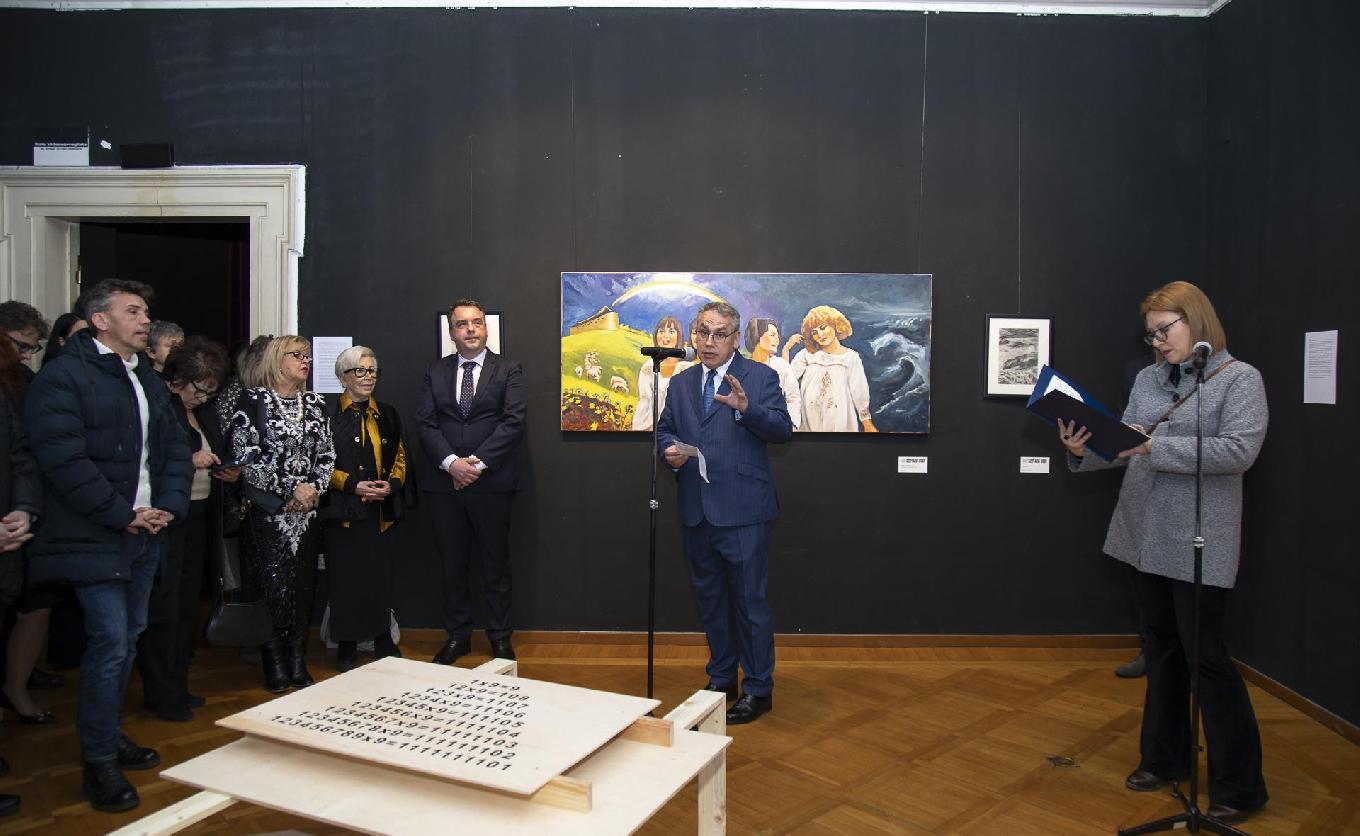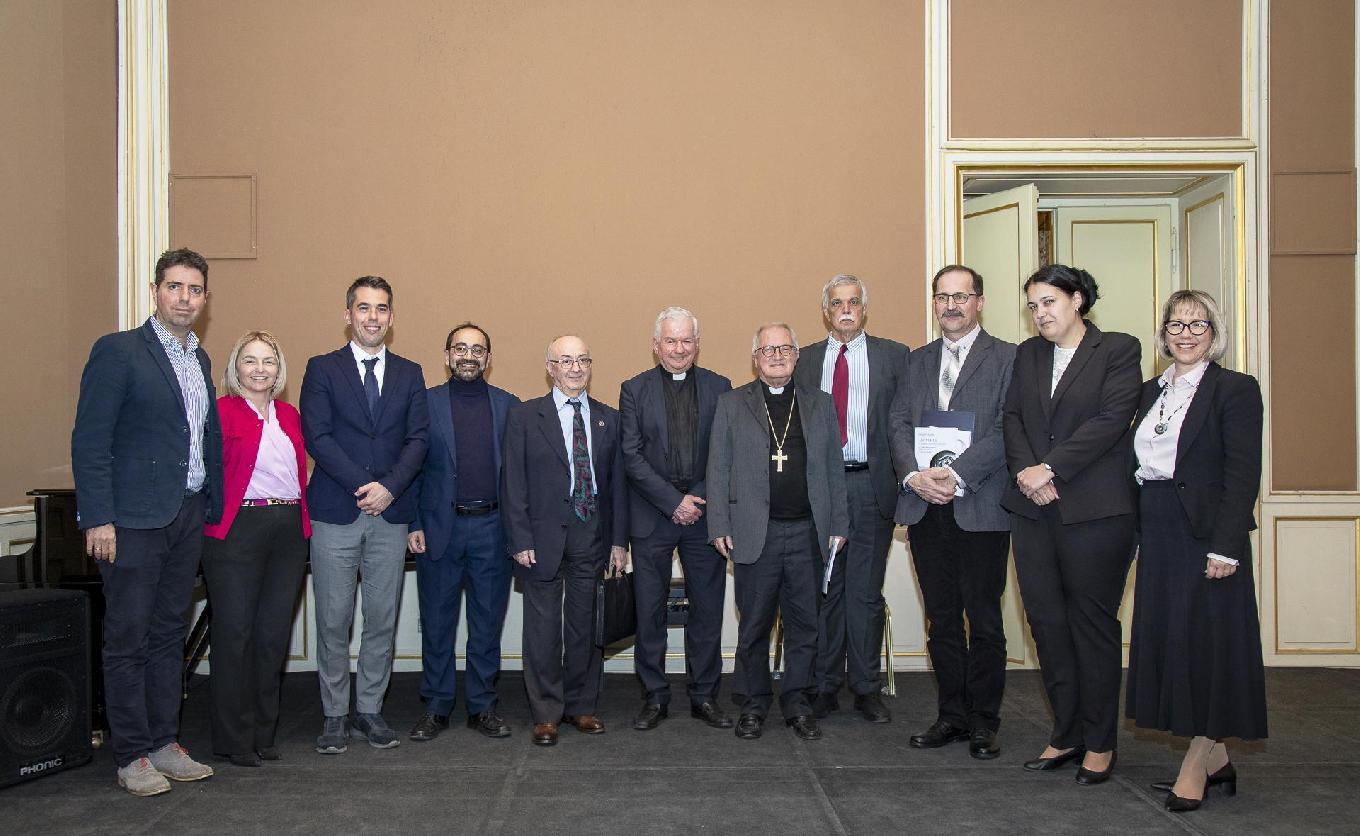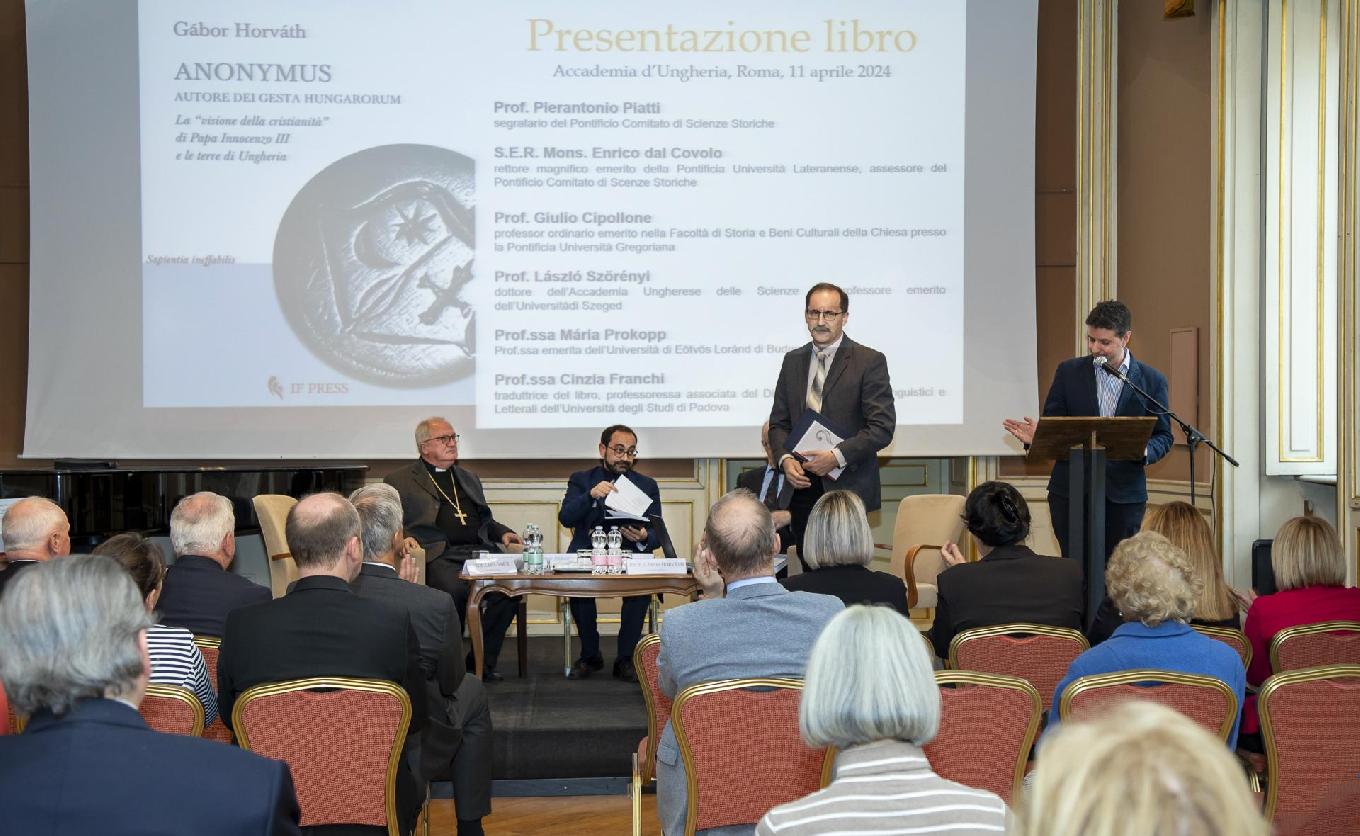The Collegium Hungaricum Rome organized a Hungarian cultural program extravaganza throughout Italy in April. Two exhibitions can be viewed in the institute's building: a contemporary art exhibition reinterpreting the Old Testament and a theatrical exhibition showcasing the Vígszínház's production of Hamlet. They presented Gábor Horváth's study titled "Anonymus," translated into Italian, continued their concert series titled "Thursday on Via Giulián," and also held a concert in Venice in honor of Franz Liszt.
The exhibition titled "Origin" is on display at the Collegium Hungaricum Rome from 13 March to 14 June, 2024. It interprets the five books of Moses from the perspective of the 21st-century individual with the help of contemporary Hungarian artists. The artworks highlight certain major themes or moments from the stories to draw the viewer's attention not only to the well-known scenes of the Old Testament but also to their individual meanings. The exhibited works are part of a private collection. Levente Kovács and Tímea Kovács-Szabó, dedicated supporters of the arts, supported the creation and unique presentation of the artworks. This is not the first time they have done so; the "Origin" exhibition is a follow-up to the "Gospel 21" collection, which was presented two years ago in the Collegium Hungaricum Rome's building. The "Gospel 21" collection featured 12 artists' works in various media, each representing one of the 12 selected scenes from the New Testament. The success of the project allowed for a new chapter, the processing of the starting books of the Old Testament. The exhibition promotes the international presence of Hungarian private collections, as well as Hungarian modern contemporary artworks and artists.
The installation of the exhibition "Eternal Yorick - Life Book," which can be viewed from 8 March to 14 June, 2024, uses set elements from the Budapest Vígszínház's production of Hamlet. Yorick, like every court jester, speaks the truth in his grotesque formulations, startling the audience with his presence in the oldest themes: secrets, death, disintegration, rebellion, farewell, anarchy, aging, sacrifice, and tragedy. The exhibition presents the plans for 110 performances and photos of their realization, resembling a flipbook covering the past 50 years. The exhibition's peculiarity lies in the absence of chronology; one can start and stop anywhere, as each individual exhibition piece stands on its own. Csaba Antal, a Hungarian artist living in Switzerland, proves to the Italian audience that Hungarian theatrical traditions and excellent theater professionals create lasting works on the international stage.
The presentation of Gábor Horváth's study titled "Anonymus," translated into Italian, took place in the Liszt Hall of the Hungarian Academy in Rome on 11 April, 2024. The book examines the "Anonymus question" and the Gesta Hungarorum within the framework of intellectual history and Christian salvation history, with a European outlook on cultural and artistic history based on available domestic and foreign documentary evidence, historical facts, and philological arguments. The revised and expanded version of the book was completed in Italian in 2024, titled "Anonymus autore dei Gesta Hungarorum. La 'visione della cristianità' di Papa Innocenzo III e le terre di Ungheria." Mons. Enrico dal Covolo, a member of the Pontifical Committee of Historical Sciences, and Giulio Cipollone wrote prefaces for the new edition, and the translation was done by Cinzia Franchi. The volume was published by IF Press as the 37th volume of Sapientia Ineffabilis. The event took place with significant Vatican participation, providing a strong foundation for similar future events.
The concert series "Thursday on Via Giulián," now held on a monthly basis, featured a concert on 11 April, where junior Prima Award-winning flutist Béla Szerényi Jr. dazzled the audience with performances on clarinet, flute, and hurdy-gurdy, playing pieces by Béla Bartók. Three exceptional Italian accordionists, Diego Di Rienzo, Riccardo Cafarotti, and Federico Graziani, members of the Millenium Trio, also participated in the concert, successfully performing works by P. Baranek.
On 28 April, 2024, organized by the institute, the concert titled "LES JEUX D'EAU / GAMES OF WATER" took place at La Fenice Theatre in Venice, as a tribute to the pianist Franz Liszt. He was the first author in the history of piano literature who was able to set strange elements to music while writing music: he was able to evoke the glitter of water on the piano. This had a great influence on new generations of composers such as Claude Debussy, Isaac Albeniz, Ottorino Respighi and Maurice Ravel. During the evening, Anna Rigoni dazzled the audience in Venice with pieces from them.

